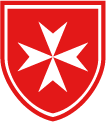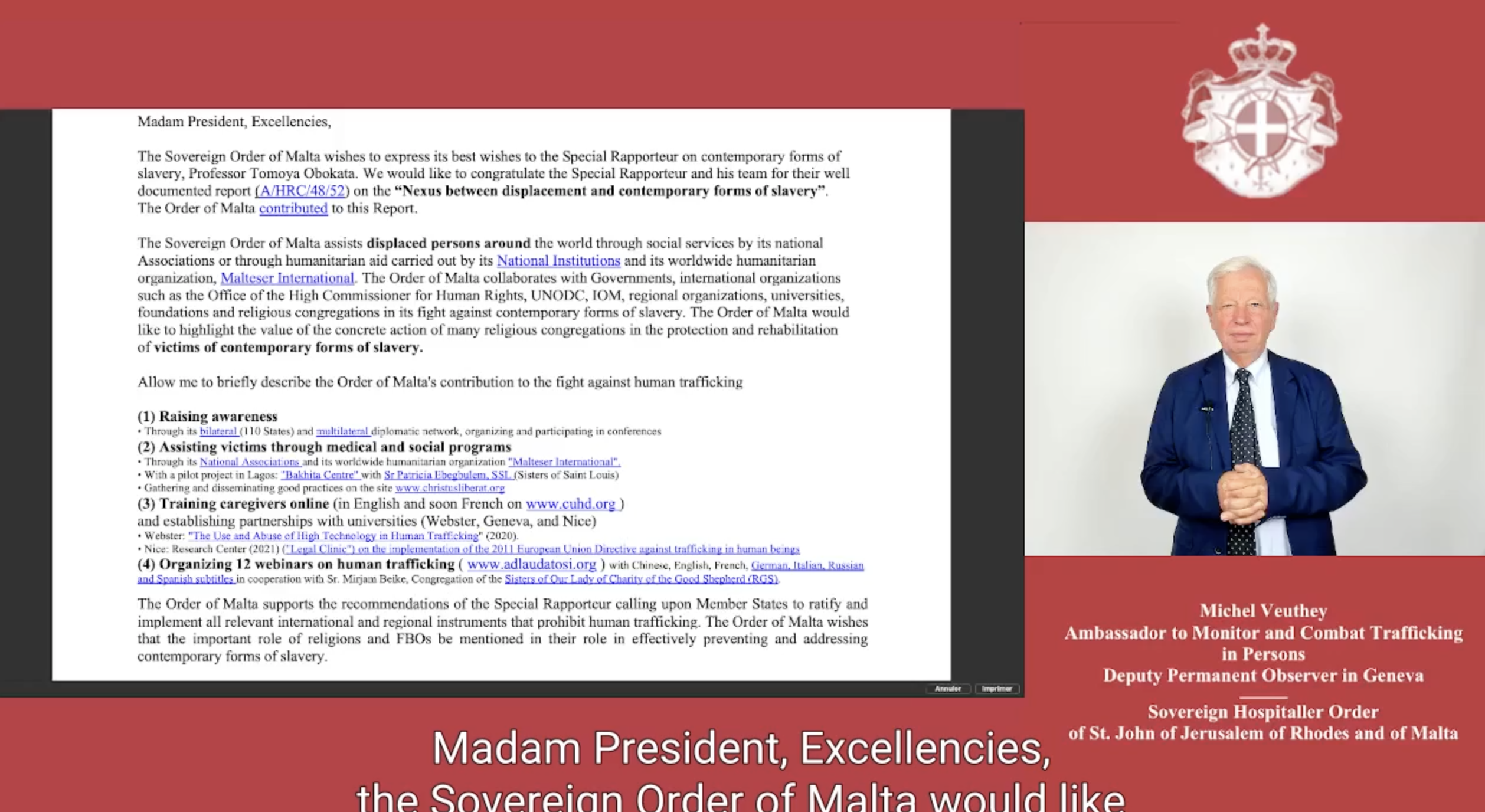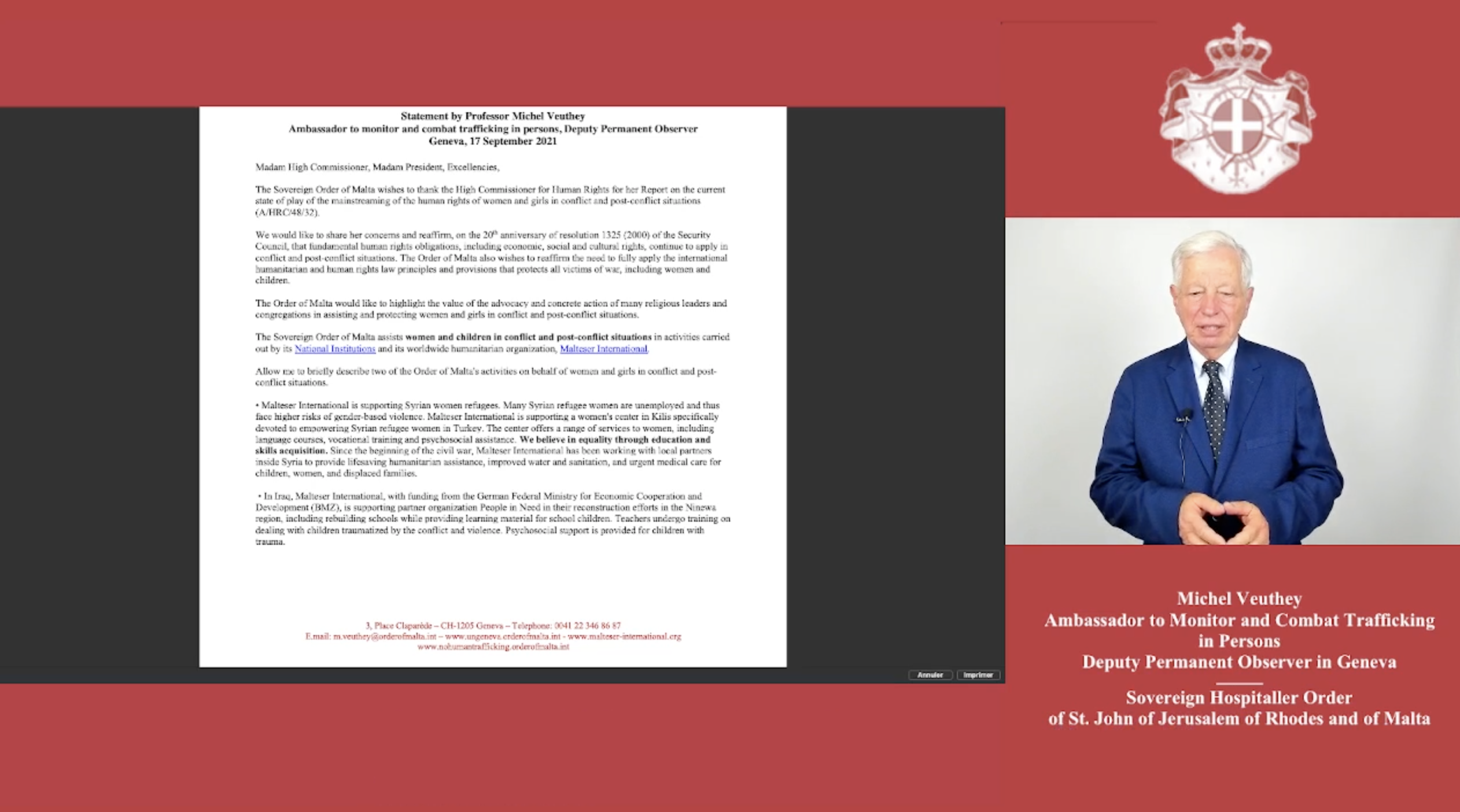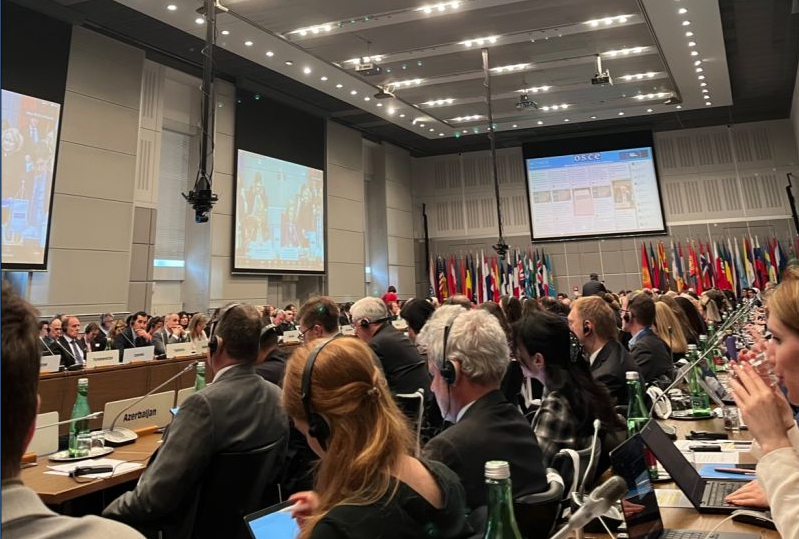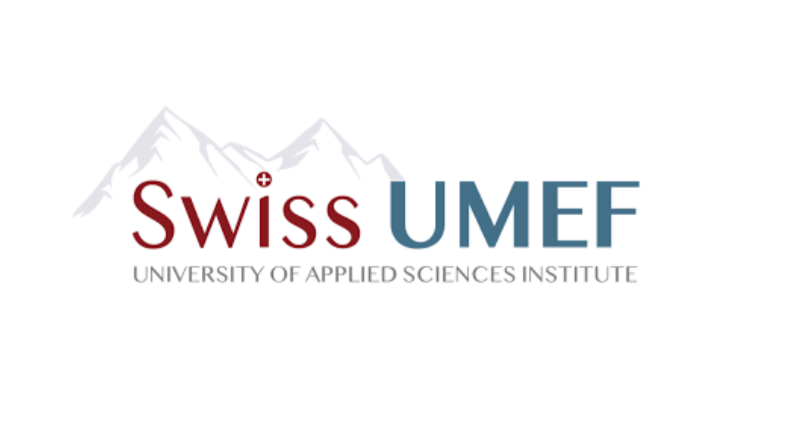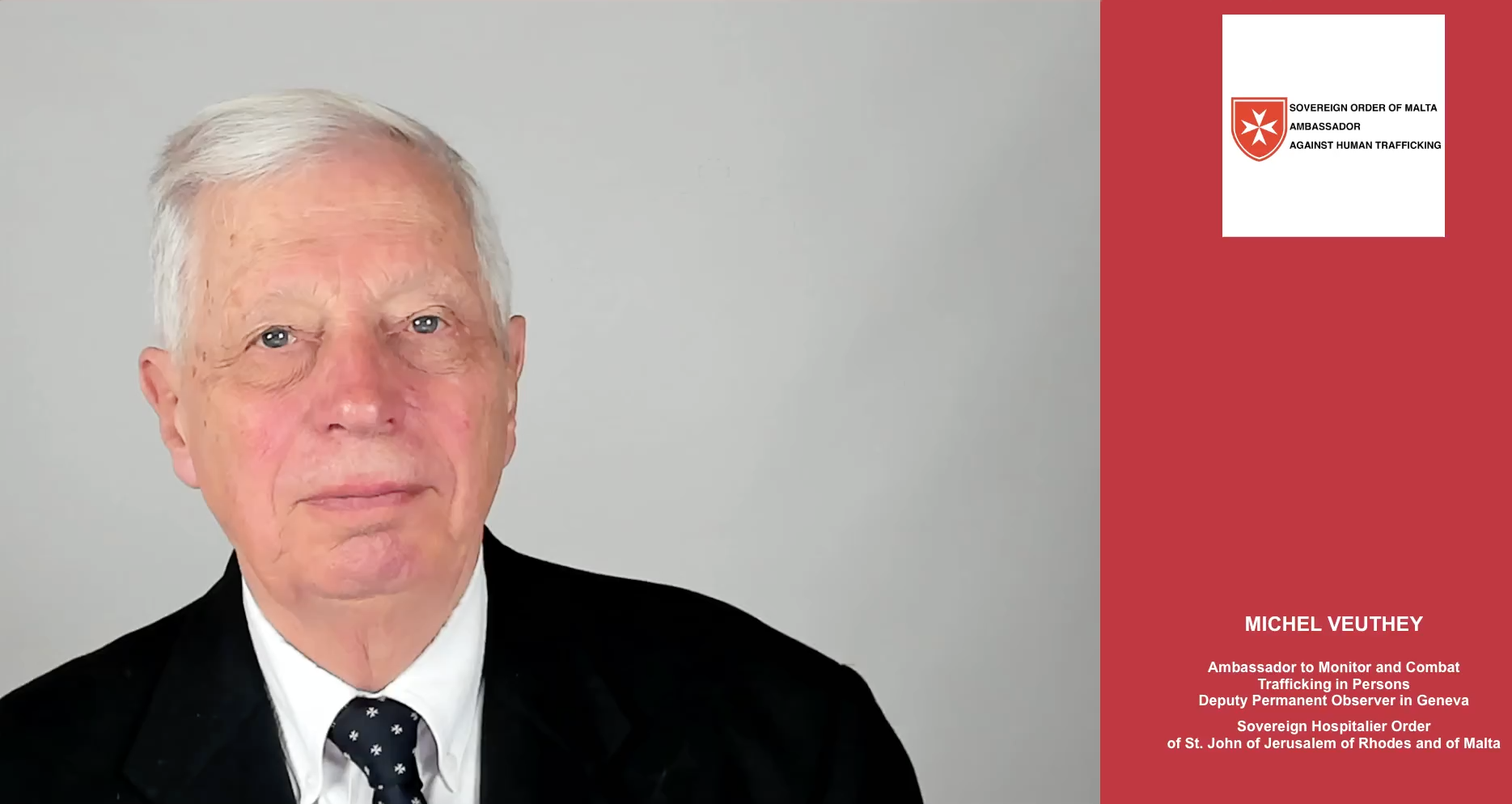Human Rights Council – A/HRC/48/52
Interactive Dialogue with the Special Rapporteur on contemporary forms of slavery,
Professor Tomoya Obokata
“Nexus between displacement and contemporary forms of slavery”
Statement by Professor Michel Veuthey
Ambassador to monitor and combat trafficking in persons, Deputy Permanent Observer in Geneva
Geneva, 17 September 2021
Madam President, Excellencies,
The Sovereign Order of Malta wishes to express its best wishes to the Special Rapporteur on contemporary forms of slavery, Professor Tomoya Obokata. We would like to congratulate the Special Rapporteur and his team for their well documented report (A/HRC/48/52) on the “Nexus between displacement and contemporary forms of slavery”.
The Order of Malta contributed to this Report.
The Sovereign Order of Malta assists displaced persons around the world through social services by its national Associations or through humanitarian aid carried out by its National Institutions and its worldwide humanitarian organization, Malteser International. The Order of Malta collaborates with Governments, international organizations such as the Office of the High Commissioner for Human Rights, UNODC, IOM, regional organizations, universities, foundations and religious congregations in its fight against contemporary forms of slavery. The Order of Malta would like to highlight the value of the concrete action of many religious congregations in the protection and rehabilitation of victims of contemporary forms of slavery.
Allow me to briefly describe the Order of Malta’s contribution to the fight against human trafficking
(1) Raising awareness
- Through its bilateral (110 States) and multilateral diplomatic network, organizing and participating in conferences
(2) Assisting victims through medical and social programs
- Through its National Associations and its worldwide humanitarian organization “Malteser International”.
- With a pilot project in Lagos: “Bakhita Centre” with Sr Patricia Ebegbulem, SSL (Sisters of Saint Louis)
- Gathering and disseminating good practices on the site www.christusliberat.org
(3) Training caregivers online (in English and soon French on www.cuhd.org )
and establishing partnerships with universities (Webster, Geneva, and Nice)
- Webster: “The Use and Abuse of High Technology in Human Trafficking” (2020).
- Nice: Research Center (2021) (“Legal Clinic”) on the implementation of the 2011/36 European Union Directive
(4) Organizing 12 webinars on human trafficking ( www.adlaudatosi.org ) with Chinese, English, French, German, Italian, Russian and Spanish subtitles in cooperation with Sr. Mirjam Beike, Congregation of the Sisters of Our Lady of Charity of the Good Shepherd (RGS).
The Order of Malta supports the recommendations of the Special Rapporteur calling upon Member States to ratify and implement all relevant international and regional instruments that prohibit human trafficking. The Order of Malta wishes that the important role of religions and FBOs be mentioned in their role in effectively preventing and addressing contemporary forms of slavery.
The Order of Malta would welcome an increased collaboration with the Special Rapporteur on contemporary forms of slavery.
Conseil des droits de l’homme – A/HRC/48/52
Dialogue interactif avec le Rapporteur spécial sur les formes contemporaines d’esclavage,
Professeur Tomoya Obokata
Lien entre déplacements et formes contemporaines d’esclavage
Déclaration du Professeur Michel Veuthey
Ambassadeur chargé de combattre la traite des personnes, Observateur permanent adjoint
Genève, le 17 septembre 2021
Madame la Présidente, Excellences,
L’Ordre Souverain de Malte souhaite exprimer ses meilleurs vœux au Rapporteur Spécial sur les formes contemporaines d’esclavage, le Professeur Tomoya Obokata. Nous voudrions féliciter le Rapporteur Spécial et son équipe pour leur rapport bien documenté (A/HRC/48/52) sur les “Liens entre déplacements et formes contemporaines d’esclavage”.
L’Ordre de Malte a contribué à ce rapport.
L’Ordre Souverain de Malte aide les personnes déplacées dans le monde entier par le biais des services sociaux de ses associations nationales ou par l’aide humanitaire apportée par ses institutions nationales et son organisation humanitaire mondiale, Malteser International. L’Ordre de Malte collabore avec des Gouvernements, des organisations internationales telles que le Haut-Commissariat aux Droits de l’Homme, l’ONUDC, l’OIM, des organisations régionales, des universités, des fondations et des congrégations religieuses dans sa lutte contre les formes contemporaines d’esclavage. L’Ordre de Malte tient à souligner la valeur de l’action concrète de nombreuses congrégations religieuses dans la protection et la réhabilitation des victimes des formes contemporaines d’esclavage.
Permettez-moi de décrire brièvement la contribution de l’Ordre de Malte à la lutte contre la traite des êtres humains
(1) Sensibilisation
- Grâce à son réseau diplomatique bilatéral (110 États) et multilatéral, en organisant et en participant à des conférences.
(2) Assistance aux victimes par des programmes médicaux et sociaux
- Par le biais de ses associations nationales et de son organisation humanitaire mondiale “Malteser International”.
- Avec un projet pilote à Lagos : “Bakhita Centre” avec Sr Patricia Ebegbulem, SSL (Sœurs de Saint Louis).
- Collecte et diffusion des bonnes pratiques sur le site christusliberat.org.
(3) Formation des soignants en ligne (en anglais et bientôt en français sur www.cuhd.org)
et mise en place de partenariats avec des universités (Webster, Genève, et Nice)
- Webster: “The Use and Abuse of High Technology in Human Trafficking” (2020).
- Nice: Centre de Recherches (2021) (“Clinique juridique” sur la mise en oeuvre de la Directive 2011/36 de l’Union Européenne)
(4) Organisation de 12 webinaires sur la traite des êtres humains ( www.adlaudatosi.org/) avec sous-titres en chinois, anglais, français, allemand, italien, russe et espagnol en coopération avec Soeur Mirjam Beike, Congrégation des Sœurs de Notre-Dame de Charité du Bon Pasteur (RGS).
L’Ordre de Malte soutient les recommandations du Rapporteur spécial qui appelle les États membres à ratifier et à mettre en œuvre tous les instruments internationaux et régionaux pertinents qui interdisent la traite des êtres humains. L’Ordre de Malte souhaiterait que le rôle important des religions et des organisations confessionnelles soit mentionné dans leur rôle de prévention et de traitement efficaces des formes contemporaines d’esclavage.
L’Ordre de Malte se réjouirait d’une collaboration accrue avec le Rapporteur spécial sur les formes contemporaines d’esclavage.
